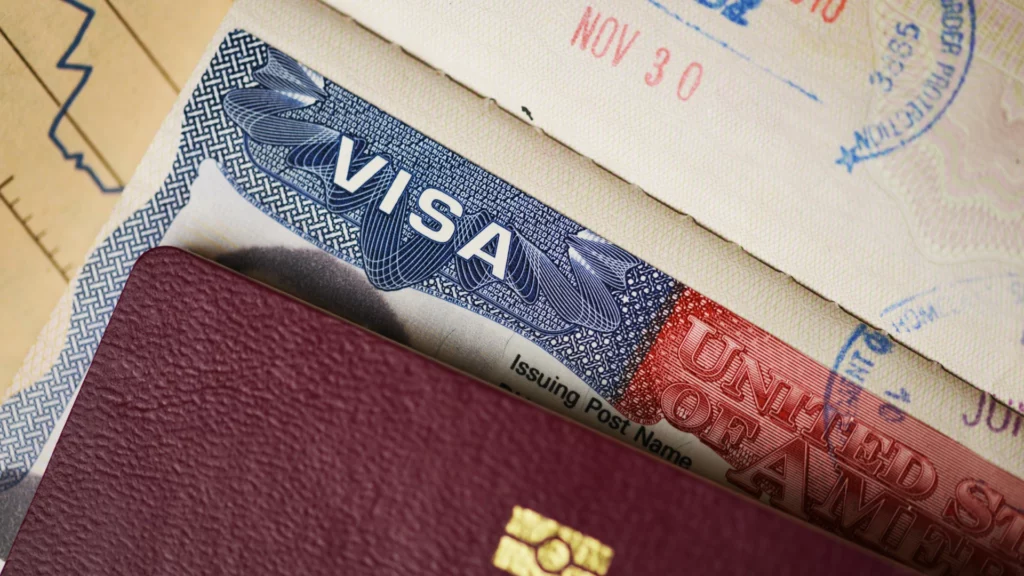
Visa France Guide: Comprehensive Steps and Requirements
Table of Contents
Planning a trip or a long-term stay in France often starts with obtaining the right one. Whether you are visiting for a few days, studying for several months, or settling for years, understanding the French visa process is essential. This guide provides clear information on visa types, required documents, the application procedure, and key requirements for foreign nationals.
Overview of French Visa Types
France, as part of the Schengen area, issues different kinds of visas depending on the length and purpose of your stay. Each applicant must carefully check their situation and choose the correct option before starting the online application.
Short-Stay Visas
The short-stay visa, often called a Schengen visa, allows entry into France and the Schengen territory for up to 90 dayswithin a 180-day period. It is commonly used for tourism, business trips, family visits, or short training programs. Holders must respect border rules and cannot convert this visa into a residence permit once in France.
Long-Stay Visas
A long-stay visa is issued for stays exceeding 90 days. Depending on the case, it may serve as a residence permit during the first months of your stay. Long-stay visas cover studies, employment, family reunification, or other specific reasons. Upon arrival, applicants often need to validate their visa with the prefecture or via the official government website.
VLS-TS (Long-Stay Visa Valid as a Residence Permit)
The VLS-TS, or long-stay visa equivalent to a residence permit, is issued for stays longer than 12 month in France. It is commonly used for work, study, family reunification, or other long-term purposes. Unlike short-stay visas, the VLS-TS allows holders to legally reside in France.
Upon arrival in France, VLS-TS holders must validate their visa online via the official government platform, usually within the first three months. This validation activates the visa as a residence permit and registers the holder with the French authorities. Depending on the purpose of stay, additional steps may be required, such as enrolling in health insurance, registering with the local prefecture, or attending mandatory appointments for students or employees.
Required Documents for a French Visa
When preparing your visa application, having the right supporting documents is crucial. Missing or incomplete files can lead to refusal or delays.
General Document Checklist
All visa applicants must provide at least:
-
A valid passport (issued within the last 10 years and valid at least three months beyond your planned stay).
-
A completed form and online application.
-
Recent passport-size photos that meet official conditions.
-
Proof of accommodation in France (hotel booking, rental agreement, or invitation letter).
-
Travel insurance covering the Schengen area.
-
Proof of sufficient financial means for the entire stay.
Additional Documents for Specific Visa Types
Depending on your situation, extra supporting papers may be requested:
-
For students: enrollment letter, proof of tuition payment.
-
For workers: employment contract validated by the French labor department.
-
For family reunification: proof of family ties, marriage or birth certificates.
-
For business trips: company letters, service provider invitations.
How to choose the right Health Insurance in France
Choosing the right health insurance can seem complex, given the multitude of options available. To make an informed decision, it is important to begin by evaluating your personal healthcare needs. This includes how often you visit doctors, the types of care you may need (such as optical or dental), and whether you have any pre-existing medical conditions that require special attention.
Once you have a clear idea of your needs, it is advisable to compare the different offers on the market. Many online tools allow you to compare guarantees, reimbursement levels, and premiums from various health insurers. Take the time to review the details of the contracts, including exclusions, waiting periods, and reimbursement caps. This will help you avoid unpleasant surprises when you need care.
Finally, don’t hesitate to seek advice from professionals, such as insurance brokers or health advisors. They can help you navigate the process and find health insurance that suits your situation. By taking the time to choose your health insurance carefully, you can ensure optimal coverage and peace of mind in the face of unexpected medical issues.
Visa Application Process in France
The procedure to obtain a French visa differs depending on whether you apply from abroad or already reside in France.
Applying from Your Home Country
Most foreign nationals must submit their request through the local French consulate or an accredited visa centre. In many cases, France uses external service providers to handle appointments, documents, and biometric data collection. Applicants must:
-
Complete the application online via the official platform.
-
Book an appointment at the visa centre.
-
Submit originals and copies of all required papers.
-
Pay the relevant fees.
Applying While Already in France
In exceptional cases, such as status changes, some requests can be made directly at the local prefecture or department. Applicants should always check the rules in advance, as conditions are strict.
Fees and Processing Times
Understanding costs and timing is key to planning your travel.
Visa Application Fees
Application fees vary by type:
-
Short-stay Schengen visas usually have standard fees.
-
Long-stay visas may cost more depending on the reason for your stay. Some categories, such as students or family members of European citizens, may benefit from reduced fees or exemptions.
Average Processing Times
On average, applications take several days to a few months, depending on the country where the request is made, the service provider, and the complexity of the file. Applicants can often track their request via the official website or the visa centre’s platform.
Key Takeaways
-
Always prepare supporting papers carefully and provide originals when required.
-
Respect the rules of the Schengen area and French border conditions.
-
Make sure your passport is valid and that your application online is complete.
-
Contact the local consulate, prefecture, or service provider for updated information.
-
Plan in advance: depending on your situation, the process can take weeks or even months.
With the right papers and preparation, your French visa will give you legal access to France and the Schengen territory, opening the way for study, work, or unforgettable travel.

Get Personalized Guidance with Welcome Abroad
Navigating the French visa process can sometimes feel complex, with different forms, requirements, and deadlines to manage. At Welcome Abroad, our mission is to make this journey smooth, clear and stress-free with all the details you need. We provide tailored advice, accurate information, and practical support so every applicant can move forward with confidence. Whether you need help checking your papers, understanding the steps, or booking your appointment, we are dedicated to guiding you every step of the way.
